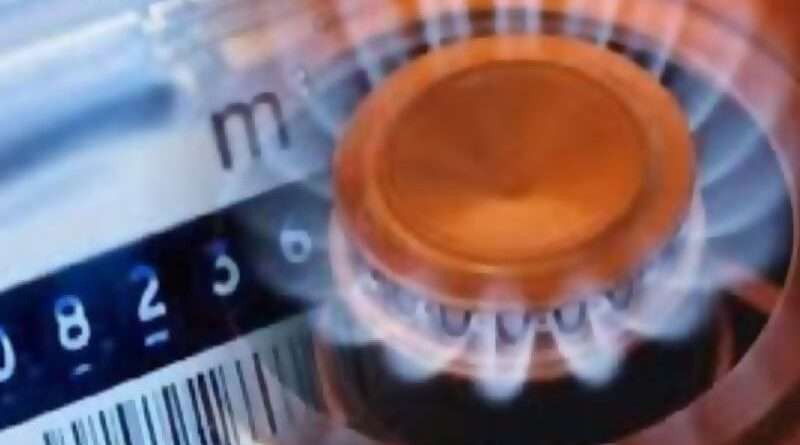Uniform Gas Prices: Cabinet’s Proposal to Avoid Market Distortion
|
Getting your Trinity Audio player ready...
|
The cabinet, led by Prime Minister Shehbaz Sharif, is considering implementing uniform gas prices to eliminate perceived favoritism benefiting certain manufacturers. Currently, different urea manufacturers are subject to varied gas tariffs, creating a profit disparity since all manufacturers sell fertilizer to farmers at uniform rates. This discrepancy has led to calls for a standardized approach to gas pricing to ensure fairness and market stability.
The Current Scenario
Unequal Tariffs: Urea manufacturers currently pay different gas tariffs, resulting in varied profit margins despite uniform selling prices to farmers.
Cabinet’s Concern: Cabinet members have raised concerns over this favoritism, which allows some manufacturers to reap higher profits.
Proposal: Uniform gas pricing for all fertilizer manufacturers to prevent market distortion.
The Underlying Issue
Long-Term Contracts: The differing gas prices are due to binding long-term contracts with fertilizer manufacturers, indicating past agreements that favored certain entities.
Financial Impact: These agreements have resulted in significant financial gains for certain manufacturers at the expense of farmers.
Government’s Stance: Similar to amendments being made with independent power producers (IPPs), the government is considering revisiting and amending these contracts with fertilizer manufacturers.
Cabinet Deliberations
Prime Minister’s Inquiry: During a recent meeting, Prime Minister Shehbaz Sharif sought details about gas pricing and the cabinet committee’s final recommendations.
Deputy Prime Minister’s Explanation: The deputy prime minister highlighted extensive efforts to reach current arrangements, noting divergent views between the Ministry of Industries and Production and the Petroleum Division. One division pushed for fertilizer exports, while the other opposed it, leading to a consensus on managing supplies and prices domestically.
Economic Coordination Committee (ECC) Decisions: In an August 2, 2024 meeting, the ECC reviewed a summary on imported urea prices for Kharif 2024 and directed uninterrupted gas supply to Fatima Fertiliser and Agritech beyond September 30, 2024. A committee was also formed to propose measures for urea price stability.
Committee’s Findings
Meetings and Discussions: The committee held two meetings, on August 17 and September 25. The first meeting assessed the urea requirement for the Rabi sowing season, concluding that domestic production could meet the demand if Fatima Fertiliser and Agritech remained operational. Shutting down these plants would necessitate imports costing $169 million and an additional subsidy of Rs22.45 billion.
Gas Tariff Negotiations: The committee suggested increasing gas tariffs for Fatima Fertiliser and Agritech by Rs200 to Rs300 per million British thermal units (mmBtu). The Petroleum Division proposed two options for tariff increases, but both were deemed unfeasible by the manufacturers.
Maintaining Current Arrangements: The Petroleum Division clarified that maintaining current gas tariffs would result in higher liquefied natural gas (LNG) prices, affecting the merit order for consumers. Therefore, it was decided to continue the present arrangements for the next two months to avoid increasing fertilizer prices.
Final Recommendations
Status Quo: The committee recommended maintaining the current gas tariff of Rs1,597/mmBtu for Fatima Fertiliser and Agritech until December 15, 2024. It was agreed that negotiations would continue to establish a uniform gas price.
Supply Assurance: The cabinet directed that there would be no fertilizer imports and that Fatima Fertiliser and Agritech would be supplied gas until March 31, 2025, ensuring price stability and adequate market supply.
FAQs
1. Why are different gas prices charged to urea manufacturers? Different gas prices result from long-term contracts that were signed with specific manufacturers, leading to varied profit margins.
2. What is the proposed solution to the current gas pricing issue? The cabinet proposes implementing uniform gas prices for all fertilizer manufacturers to prevent market distortion and favoritism.
3. How will uniform gas prices benefit the market? Uniform gas prices will ensure a level playing field for all manufacturers, preventing certain entities from making excessive profits and promoting fair competition.
4. What are the financial implications of maintaining current gas tariffs? Maintaining current gas tariffs would lead to increased LNG prices, affecting the overall merit order for consumers.
5. What steps are being taken to ensure urea price stability? The cabinet has directed continuous gas supply to key manufacturers and is negotiating uniform gas prices to maintain price stability and adequate supply in the market.
6. Will there be any fertilizer imports to meet demand? No, the cabinet has decided against fertilizer imports and will ensure sufficient supply through domestic production.
7. What is the role of the Petroleum Division in this matter? The Petroleum Division is responsible for negotiating gas tariffs with fertilizer manufacturers and ensuring uninterrupted gas supply to key plants.
8. How does the current gas pricing affect farmers? The current pricing structure allows some manufacturers to make higher profits, potentially leading to increased costs for farmers. Uniform pricing aims to address this issue.
9. What is the significance of the committee formed by the ECC? The committee is tasked with proposing measures to ensure urea price stability and continuous operation of key fertilizer plants.
10. How will the cabinet’s decision impact the agriculture sector? The decision will help stabilize fertilizer prices, ensuring that farmers have access to affordable urea, which is crucial for agricultural productivity.




